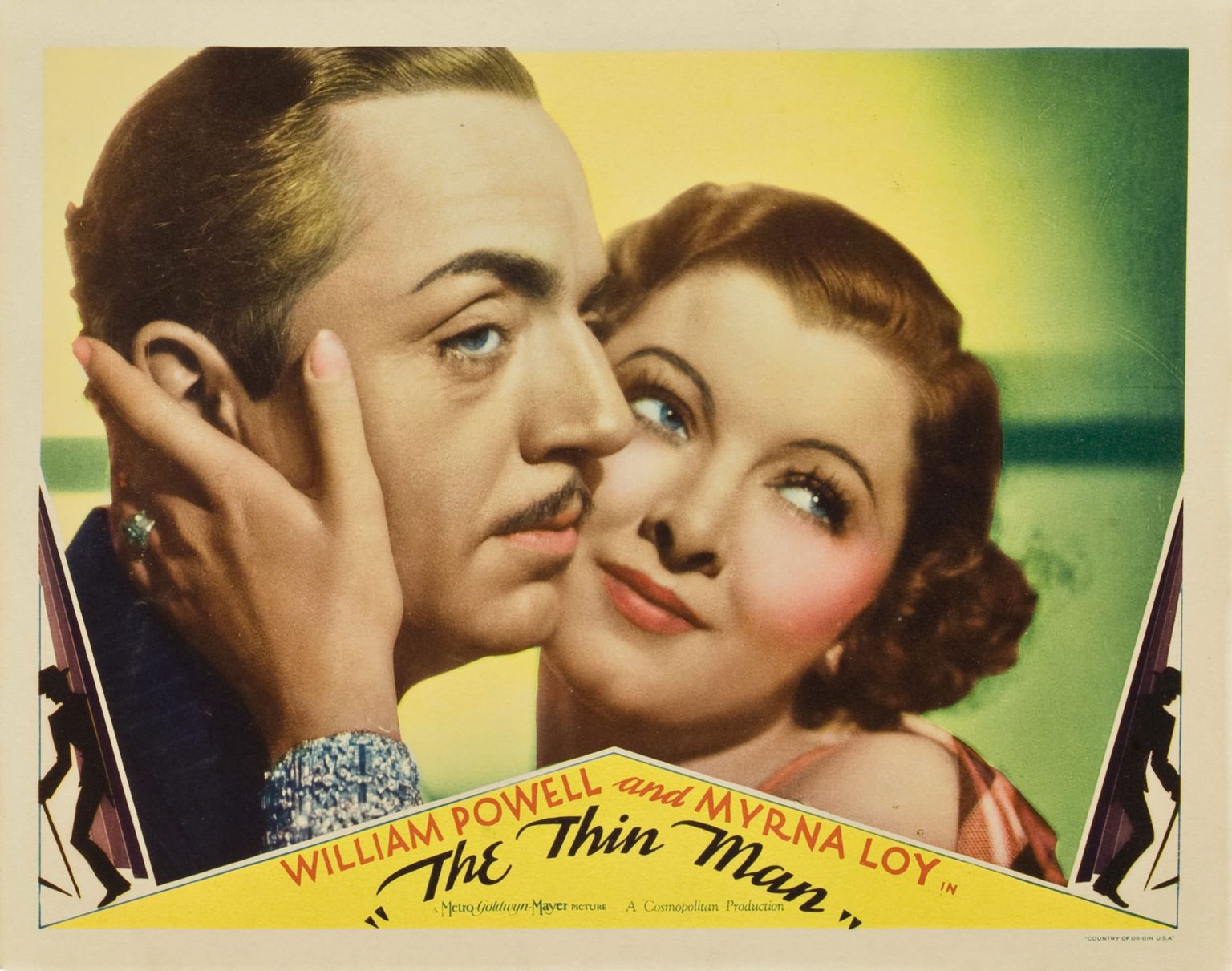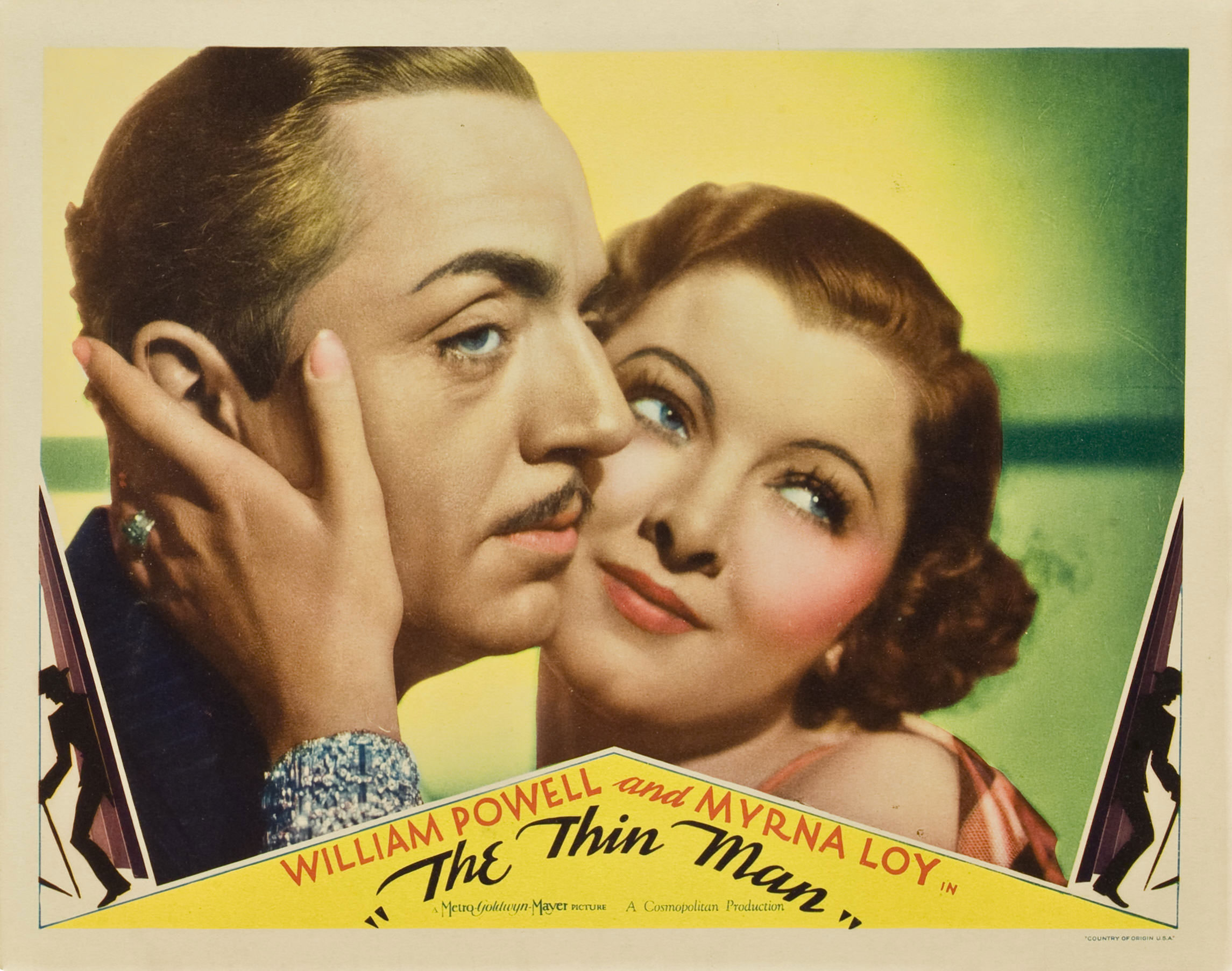
Three years ago, on New Year’s Eve, my (then) fiancé and I—we just married this spring—intended to join friends for drinks but could not. We had taken ill, at least enough to make the prospect of riding a subway uptown and back among the usual throng of revellers unappealing, and so we decided some time in the early evening to forgo the festivities and instead spend the night alone together with our orange tabby and a bottle of inexpensive sparkling wine in front of the TV. I connected my laptop to the television and together my fiance and I sifted through the hundreds of movies I had stored away on my harddrive, eager for something fizzy and undemanding. I clicked into one of the little manilla folders and said, Oh: The Thin Man. We’d never seen it. Yes, my fiance agreed, let’s watch that one—and in that moment, as they say, a tradition was born. We’ve watched The Thin Man on each New Year’s Eve since.
My fiance and I fell in love with The Thin Man, and I know why: we like to think of ourselves as contemporary versions of its heroes, Nick and Nora Charles. We can hardly be the only couple to hold this wistful conviction, however improbable it may seem. Certainly William Powell, who plays Nick Charles, is a compelling figure on which to model oneself—a buoyant, irrepressible socialite of peerless wit and sophistication. Now, I suppose I can be mildly charming on occasion, and, in my finery and with a martini in hand, I may even pass for a gentleman. But I am no William Powell. Nor, indeed, is my fiance Myrna Loy, who co-stars as Powell’s wife, though in my acting capacity I imagine I ought to insist upon the comparison. My fiance and I are not, alas, privately wealthy—despite our best efforts to will to us lottery winnings or a sizable inheritance—as Nick and Nora are in the film. And to my knowledge we have not of late found ourselves embroiled in, let alone ultimately solved, criminal mysteries of any kind.
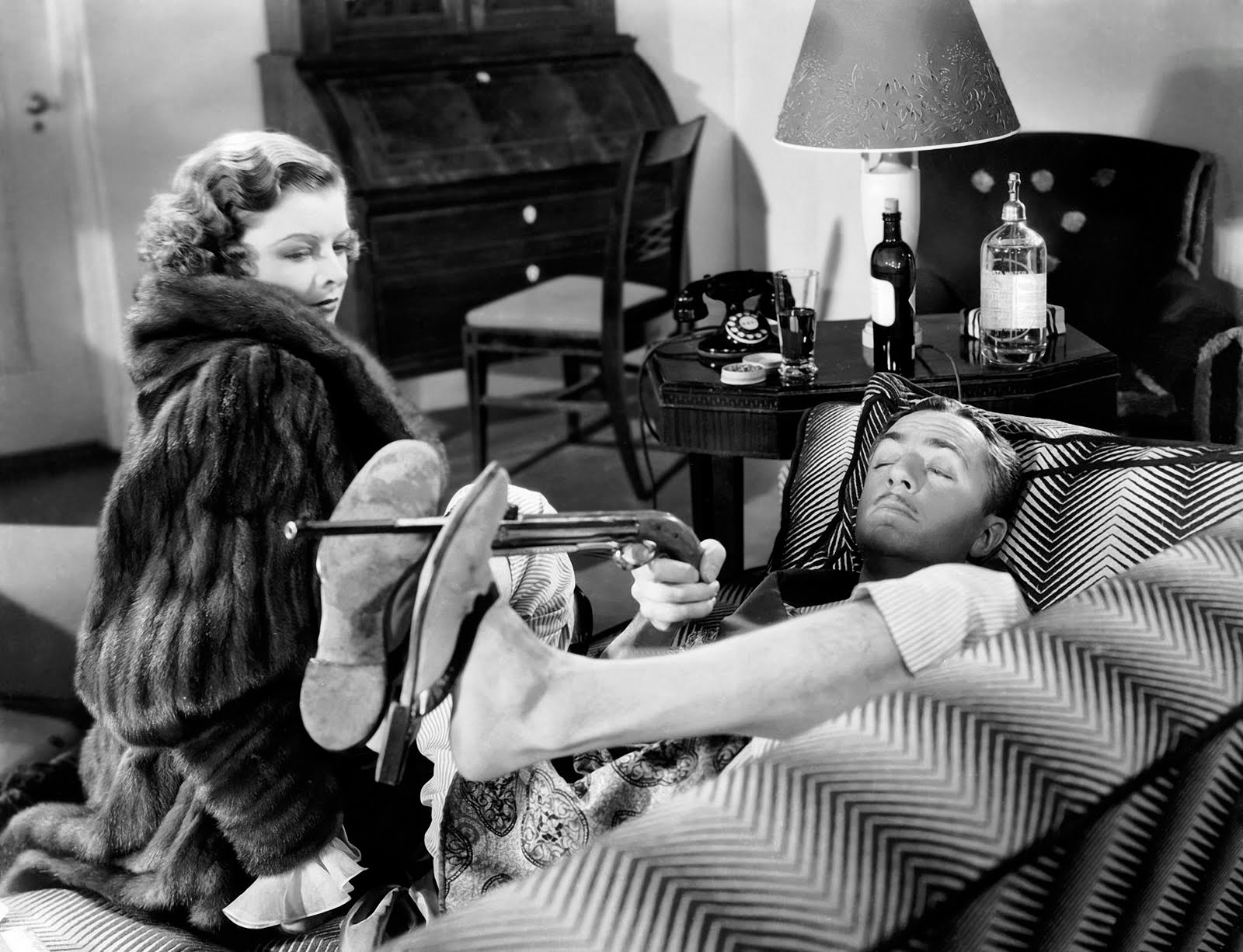
What we see of ourselves in Nick and Nora Charles is this: we see our relationship. That is, we see a convincing facsimile of the way that she and I look at one another, and talk to one another and feel about one another most of the time. And until my fiance and I saw The Thin Man we had never seen ourselves in a movie in quite the same way. There’s a looseness to this relationship, a willingness to spar and tease, an adoring vigor animating every exchange. When Nick and Nora’s wire fox terrier, Asta, tugs Nora into a speakeasy and finds Nick talking to the daughter of a former client, who trots off, and Nora asks who the girl was, and Nick without hesitation launches into a phony confession about an affair in Venice, I thought: Well, that’s what I would say. And when Nora, not missing a beat, makes a joke and orders six martinis, in order to catch up with Nick, my fiance said: That’s what I would do. That became our refrain through the film. This is just like us.
Within a week of that first New Year’s Eve, my fiancé and I had tracked down and watched The Thin Man’s five sequels, as well as a number of other films from the same period—the mid-1930s to the late 1940s—in which Powell and Loy also starred together. They were an enormously well-liked pair, it seems, maybe for the exactly the reason my fiance and I responded to them, and in virtually every one of their movies the dynamic is the same. In some, like Libeled Lady, they don’t know each other, and Powell must devise some elaborate scheme to win Loy’s affections; in others, they are married and on the verge of separating, or divorced and on the verge of getting back together. But whatever the arrangement, the end result is Powell and Loy in one another’s arms, lolling in affection while cracking wise. The two were never together romantically in real life, but we assumed it simply because of their natural chemistry. They couldn’t help but make their love seem real.
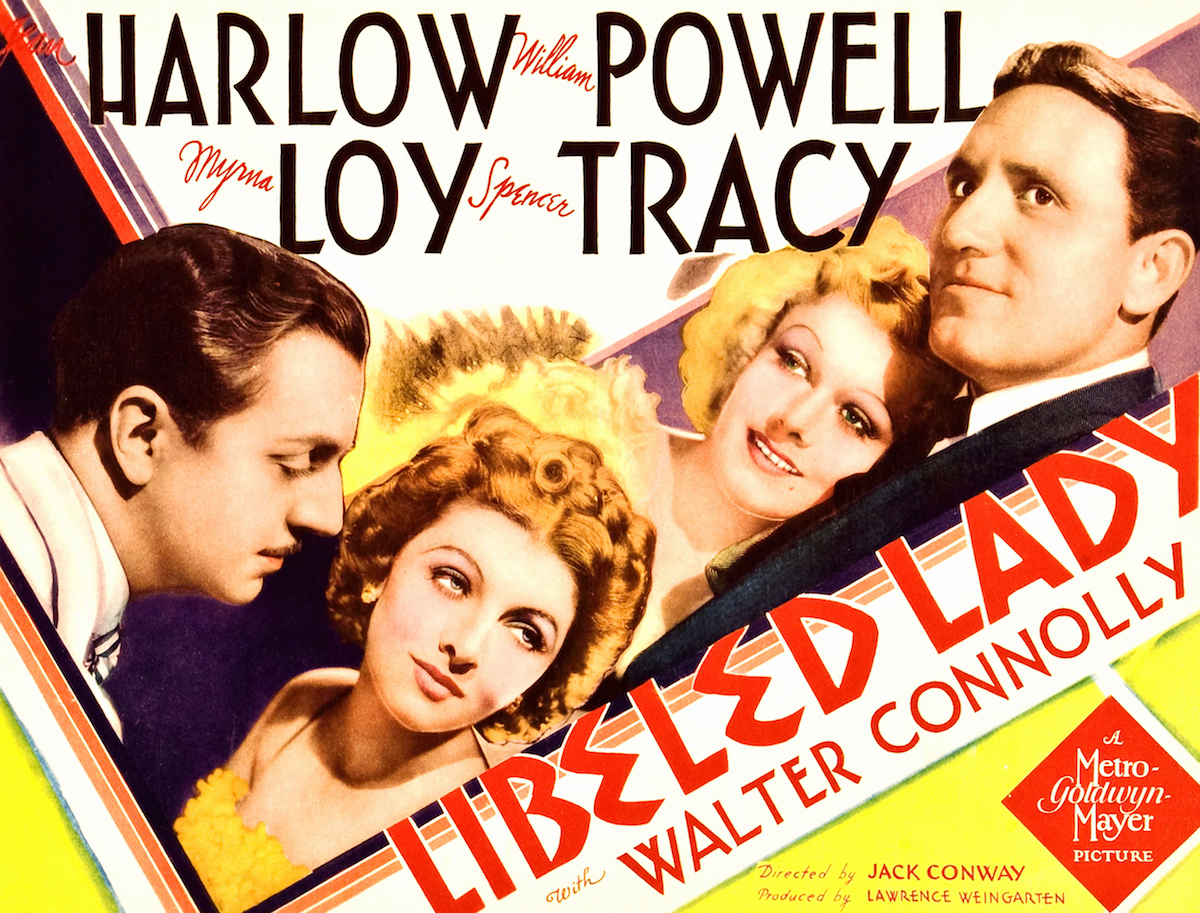
Having exhausted the world’s supply of Powell and Loy, we moved onto watching the films they made apart: Powell’s Jewel Robbery and My Man Godfrey, Loy’s Mr. Blandings Builds his Dream House and Wife vs. Secretary. We liked them all. What we found, in fact, was that while the Powell and Loy chemistry had a certain ineffable something electrifying it, the basic notion, the dynamic that set a man and woman sparring while hopelessly in love, was not unique to their screen romance. It was a convention of a genre: the screwball comedy. And that for us set in motion a new obsession. My fiance and I have, since that New Year’s Eve, watched dozens, maybe hundreds of screwballs—or any comedy from the 1930s or 1940s that might have the vaguest screwball quality. What we’re after are those effervescently tumultuous romances. We like to see ourselves on screen.
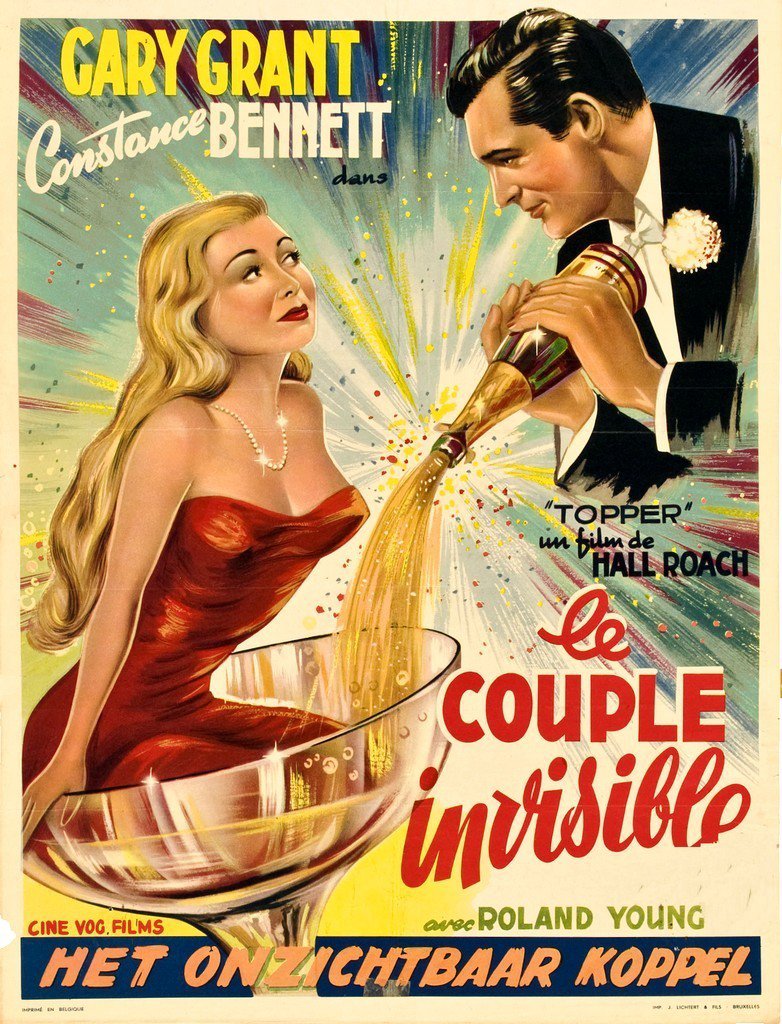
How rare we thought it was to see love conceived on screen as we felt and lived it. (And how rare it really is today, or in any film made after 1950.) But for two decades in Hollywood real romance had a golden age. The film itself doesn’t even have to be romantic. In Twentieth Century, by Howard Hawks, a theater director and the actress he marries all but destroy each other in pursuit of a very mutual greatness, and the din of the near-constant argument is muffled by endearment that anyone in love will feel. If You Could Only Cook pits a man and woman from opposite social worlds together in a rich man’s kitchen, as they tumble through pratfall after pratfall to be together. In The Palm Beach Story a man and wife have to split up and endure other people before they realize they’re the only ones who will put up with one another; In The Ex. Mrs Bradford a divorced couple only has to spend an hour in the same room to realize that they should never have been apart. On New Year’s Day this year, tired and a little hungover, my fiance and I watched Topper: in that one a fun-loving couple are killed in a car accident, but it can hardly put a stop to their dancing and drinking. That’s how strong, how vital, love is in these movies. Not even death can do much to suppress it.

